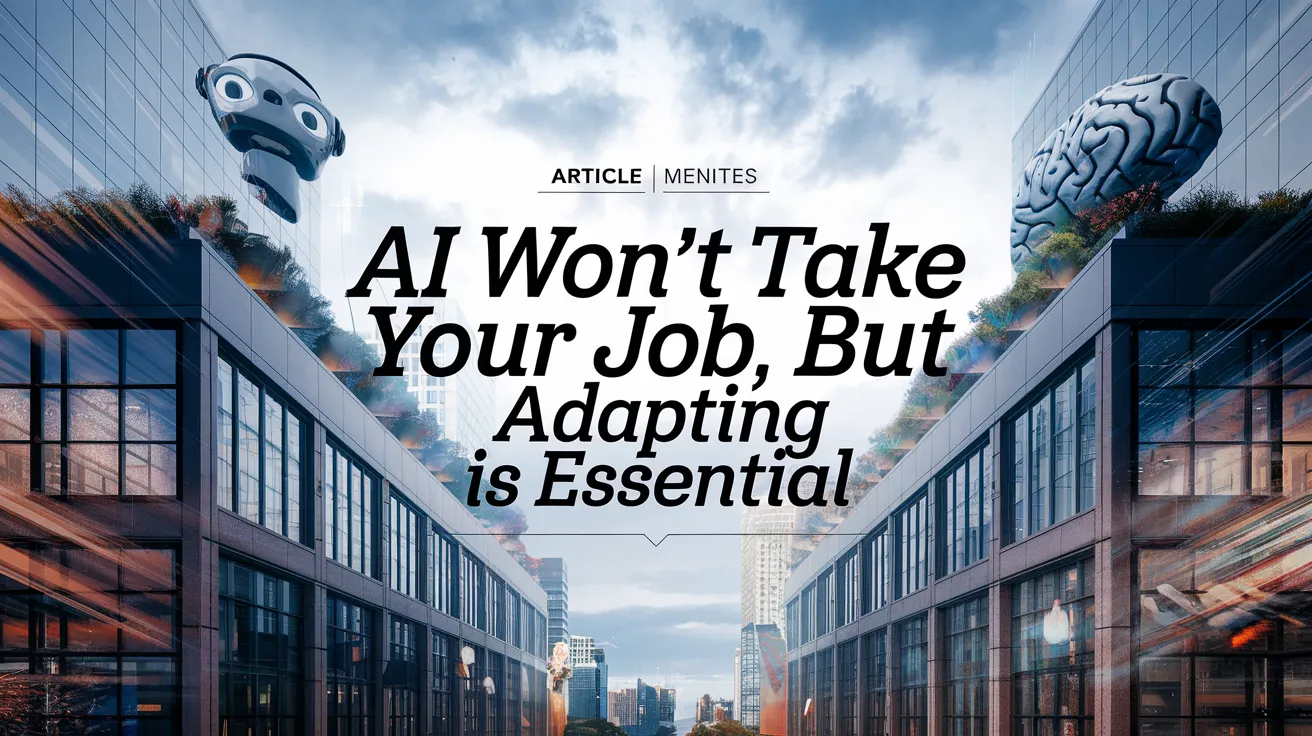AI Won’t Take Your Job, But Adapting is Essential

By Marcel Lukas, University of St Andrews
The discussions surrounding the impact of AI on employment have intensified, particularly following remarks from two prominent tech CEOs. Klarna CEO Sebastian Siemiatkowski announced that his buy-now-pay-later firm has paused hiring, arguing that AI can perform many human jobs. In contrast, Nvidia CEO Jensen Huang contends that while workers won’t be replaced by AI itself, they may lose their jobs to those who effectively harness AI tools.
The Complexity of AI’s Impact
These contrasting perspectives encapsulate a critical tension as generative AI swiftly reshapes workplaces. However, research indicates that the reality of AI’s influence is more intricate than the dichotomy of complete job displacement versus simple job enhancement.
As of spring 2024, approximately 66% of employment in the U.S. is exposed to significant levels of generative AI impact, with the remaining 34% encountering effects in secondary tasks. Notably, the pace of generative AI adoption is unprecedented, surpassing that of personal computers and even the internet.
Generative AI’s Unique Disruption
The current transformation is particularly noteworthy because generative AI disrupts a diverse range of “cognitive” and “non-routine” tasks, especially within middle- to high-paid professions. This represents a departure from previous automation waves that primarily impacted routine manual labor. With generative AI continuously evolving, this trend is poised to strengthen further.
Insights from Research
A comprehensive study examining the effects of AI-powered conversational assistants on customer support agents provides valuable insights. The results challenge both the utopian and dystopian narratives surrounding AI’s influence on the workforce.
While access to AI tools led to an average increase in worker productivity of 14%, the benefits were not evenly distributed. Novice and low-skilled workers experienced productivity gains of up to 35%, as AI assisted them in adopting best practices from high-performing peers. Conversely, highly skilled workers saw minimal improvements, suggesting that AI might help level the playing field by empowering less-experienced employees.
Klarna’s Experiment with AI
Klarna’s strategy of halting hiring while raising salaries for remaining employees illustrates a more nuanced reality. Although AI automates specific tasks, the value of human expertise appears to be increasing. This aligns with the findings showing that organizations require personnel who can proficiently utilize AI tools.
Supporting Nvidia’s viewpoint, a KPMG survey of U.S. executives identified administrative roles at risk from AI, yet effects varied significantly across sectors. For instance, respondents from manufacturing noted mixed expectations regarding AI’s benefits and drawbacks.
The Path Forward
The evidence indicates a shift in job roles rather than widespread elimination; job security may hinge more on employees’ ability to incorporate AI into their workflows rather than whether their positions can be automated.
Research into ChatGPT adoption in Denmark revealed that half of the surveyed workers had utilized the generative AI tool. Younger, less-experienced, high-achieving, and predominantly male workers led this tech adoption, even in the face of employer restrictions and a need for training. They did not cite fear of redundancy as a reason for avoiding AI.
Key Strategies for Navigating Change
- Lifelong Learning: Workers must continuously update their skills, especially in areas that complement AI, such as critical thinking and complex problem-solving.
- AI Literacy: Knowing how to effectively use AI tools is becoming as vital as traditional job skills.
- Organizational Adaptation: Companies need to invest in training and development for employees while establishing clear AI usage guidelines.
The rapid pace of generative AI adoption implies that organizational changes are happening faster than any previous technological transformation. Workers and companies that adapt swiftly will likely hold a competitive advantage against those who resist change.
The differing perspectives of Siemiatkowski and Huang represent varied futures in an AI-enhanced workspace. The evidence advises against viewing the situation as one of total replacement or benign coexistence. Instead, we are embarking into a realm where the capability to collaborate with AI will increasingly determine success in careers.
Early indications that AI can bolster the performance of less experienced workers are promising, yet the overarching lesson from these predictions is foundational: our response to AI’s transformation of industries is within our control. Embracing the change means pursuing roles where we can leverage AI rather than being sidelined by it.
Marcel Lukas is a Senior Lecturer in Banking and Finance and Director of Executive Education at the University of St Andrews. This article was originally published by The Conversation.